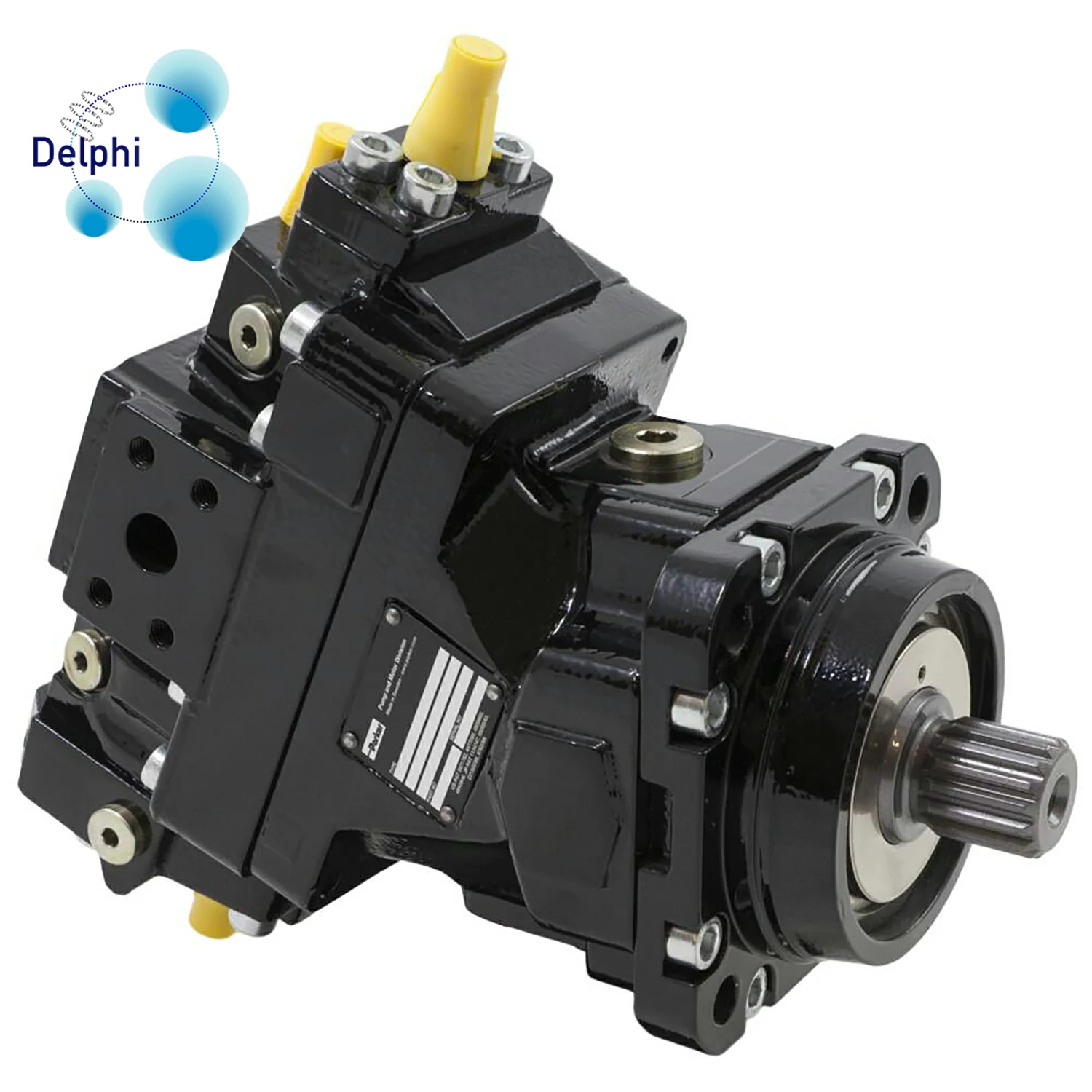The relationship between pump speed and power consumption in a hydraulic system with a V14 Series Motor, or any hydraulic motor for that matter, can be understood through the basic principles of hydraulic power transmission.
- Power Equation: The power (P) in a hydraulic system is given by the equation:
�=�×Δ�÷�
where:
- � is power,
- � is flow rate,
- Δ� is pressure difference,
- � is the overall efficiency of the hydraulic system.
- Motor Displacement and Speed: The displacement (�) of a hydraulic motor is a measure of the volume of fluid it can move in one revolution. The relationship between flow rate (�), displacement (�), and motor speed (�) is given by:
�=��
where:
- � is flow rate,
- � is displacement,
- � is motor speed.
- Power Consumption and Speed: Combining the two equations above, power consumption (�) in a hydraulic system with a V14 Series Motor can be expressed in terms of motor speed:
�∝�×�×Δ�÷�
This relationship indicates that power consumption is directly proportional to motor displacement,V14 Series Motor supplier speed, pressure difference, and inversely proportional to the overall efficiency of the system.
- Effect of Motor Speed:
- Increased Speed: As the motor speed (�) increases, the flow rate (�) and power consumption (�) also increase, assuming other parameters remain constant.
- Decreased Speed: Conversely, decreasing the motor speed reduces flow rate and power consumption.
- System Efficiency:
- The overall efficiency (�) of the hydraulic system, including the motor, pump, and other components, is a critical factor. Higher system efficiency results in less wasted energy and lower power consumption for a given output.
It’s important to note that the actual power consumption depends not only on motor speed but also on system parameters like pressure, flow rate, and efficiency. Additionally, the load on the hydraulic motor and the specific characteristics of the V14 Series Motor should be considered for accurate predictions.
For precise information about the V14 Series Motor and its performance characteristics, it is recommended to refer to the product documentation, technical specifications, and guidelines provided by the manufacturer.
What are the advantages and disadvantages of using a V14 Series Motor with a pump?
However, in a general sense, I can outline some common advantages and disadvantages associated with using hydraulic motors (like those in a V-series) in conjunction with pumps in hydraulic systems:
Advantages:
- High Power Density: Hydraulic motors, including those in V-series, often have high power density, providing a lot of power in a relatively compact size.
- Versatility: Hydraulic motors are versatile and suitable for various applications, ranging from industrial machinery to mobile equipment.
- Variable Speed and Torque: Hydraulic motors offer the advantage of variable speed and torque control, making them adaptable to different operational requirements.
- Efficiency: Modern hydraulic motors can achieve high efficiency levels, converting hydraulic energy into mechanical power effectively.
- Smooth Operation: Hydraulic systems, when properly designed and maintained, can provide smooth and precise control, contributing to accurate motion control in machinery.
Disadvantages:
- Fluid Leakage: Hydraulic systems are prone to fluid leakage, which can be a disadvantage, V14 Series Motor manufacturer especially if the system operates in sensitive environments or requires strict cleanliness.
- Maintenance Complexity: Hydraulic systems, including motors, can be complex to maintain. Regular maintenance is crucial to ensure optimal performance.
- Heat Generation: Hydraulic systems can generate heat during operation, and excessive heat can affect the efficiency and longevity of the system. Adequate cooling measures may be necessary.
- Initial Cost: The initial cost of hydraulic components, including motors and pumps, can be relatively high compared to some alternative power transmission systems.
- Noise Generation: Hydraulic systems can produce noise during operation, and in some applications, noise reduction measures may be required.
- Environmental Impact: Hydraulic systems may use hydraulic fluid that can have environmental implications. It’s important to choose hydraulic fluids that meet environmental standards and to handle them responsibly.
For a more accurate and specific assessment of the V14 Series Motor and its compatibility with a pump, including detailed advantages and disadvantages, it is recommended to refer to the product documentation, technical specifications, and guidelines provided by the manufacturer of the motor.
